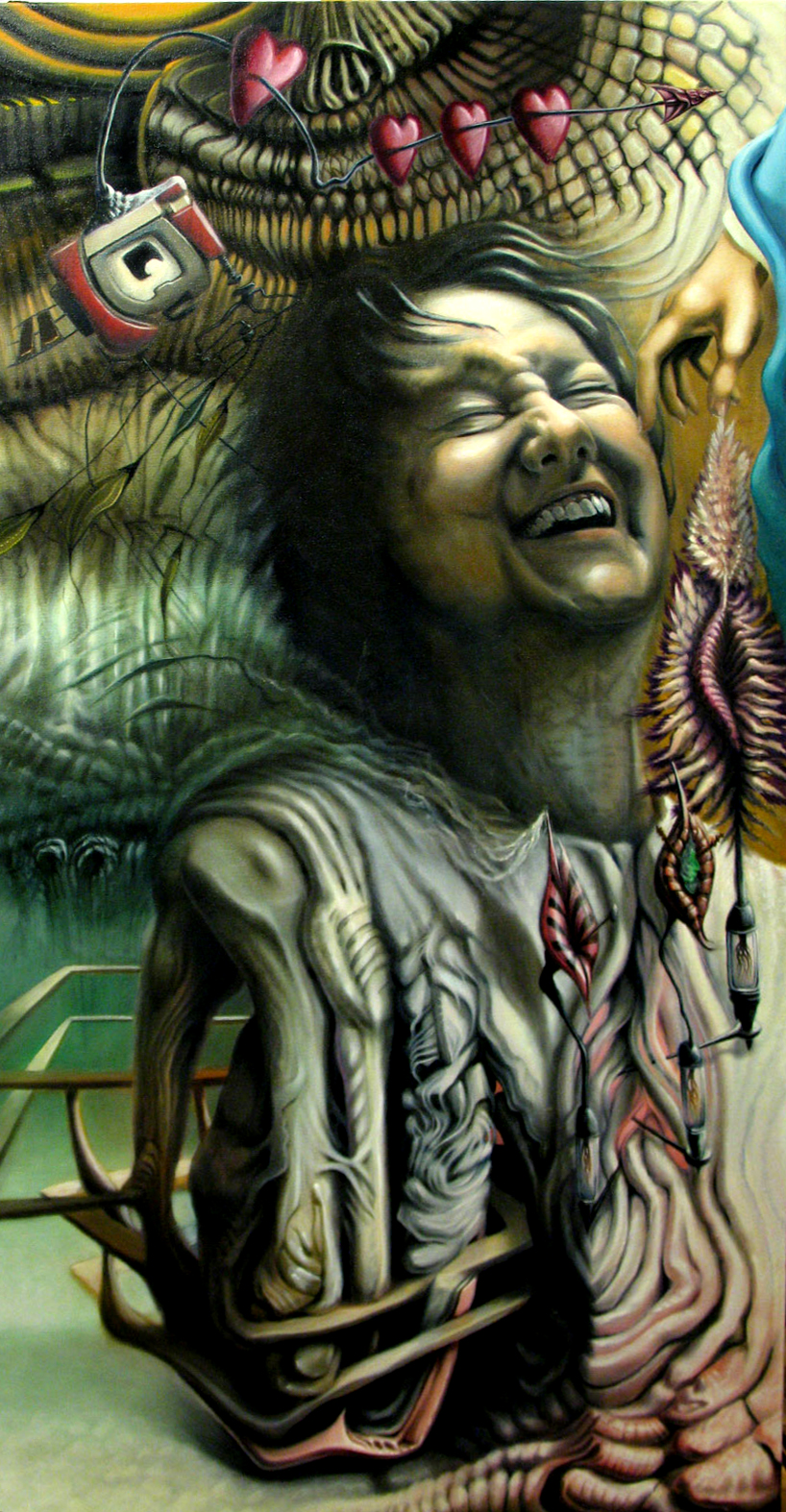The Invocation of Worship explores a woman, the wife of a patron and friend, through a deep psychic meditation on her relations to her husband, peers, and inner sentiments. In this painting the body is a mass of flesh and material, speaking dually of the challenge of overcoming the sufferings and distractions of the organic body as well as the particular connection women have to the organic; concerning menstruation, pregnancy, cultural weight issues, and so on.
The body is sloughing off, revealing on the left side her endoskeleton—the bare bones of mortality, feeling, and gross physical being. It signifies the letting go of vanity through the aging process. The left side of the painting in the background represents past turmoil and traumas–foliage of fetishisms, emotional insecurities, and sadomasochistic abuse experienced among peers.
Her husband, a sculptor of mobiles, integrates into the frame of her being through the wire-like elements and the large rib-like parallel structures engaging her body along the left side. To this capacity he serves as a supportive, purposeful architecture. The influence of the husband also points away from that past via a series of hearts along a wire toward the direction of a divine hand, fingers gently touching the woman on her cheek—entering on the right side as a symbol of illumination indicating destiny and acceptance of worship.
Without the illumination on the face its expression would be purely grim, one of pain and suffering, yet with it, the possibility of laughter, even benign ticklishness, avails itself. In that precise moment of the composition the nightmarish and grotesque qualities of the body and its obsessions are evaporated.
Heart chakra flowers refined in test tubes evolve in a series; the rightmost flower expanding into full bloom as it rises to meet the hand of god.
The piece as a whole details the many intimate parts of a being cultivated and invoked through often unpleasant life experience to transcend the mundane and find spiritual value. Its inspiration is rooted in that element to the human spirit which persists beyond the temporary and unsatisfactory conditions of life.
